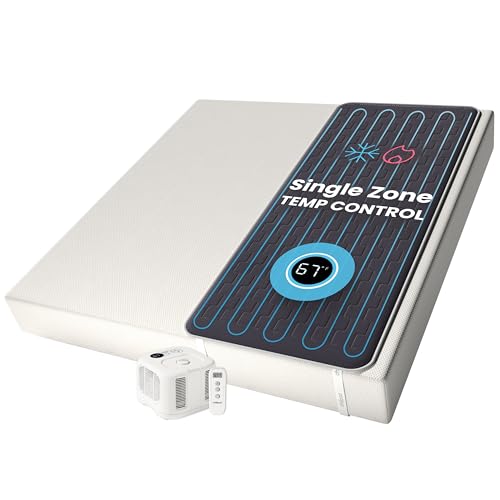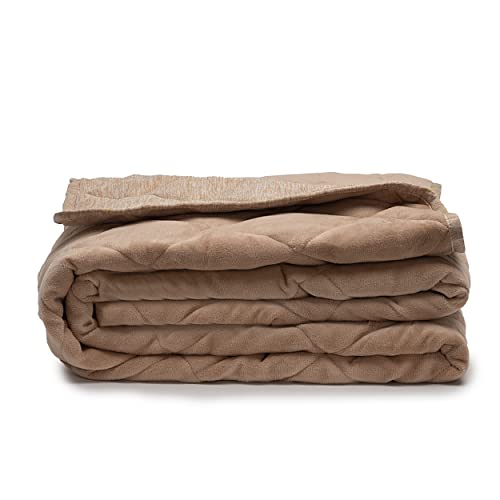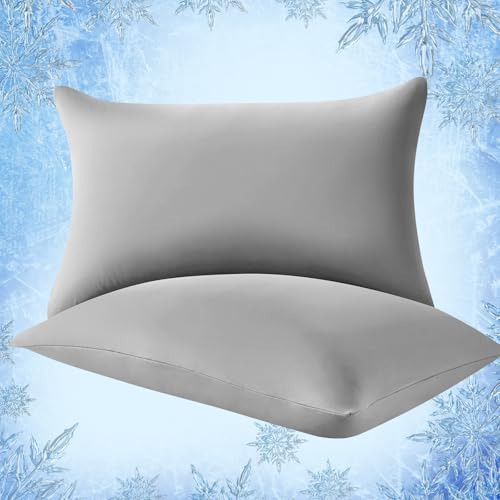Disclosure
This website is a participant in the Amazon Services LLC Associates Program, an affiliate advertising program designed to provide a means for us to earn fees by linking to Amazon.com and affiliated sites.
Sleeping comfortably during the summer requires a combination of smart choices, breathable bedding, and room-cooling strategies. When temperatures rise, getting restful sleep can feel like an uphill battle. Research shows that the optimal sleep temperature is around 65°F (18°C), but summer nights often push well beyond that—leaving many tossing and turning in sweaty discomfort.
Ever woken up drenched in sweat or found it impossible to fall asleep no matter how tired you were? You’re not alone. Overheating at night disrupts your body’s natural sleep cycle, leading to fragmented rest and daytime fatigue. But the good news? There are practical, affordable, and science-backed ways to keep your nights cool and your rest uninterrupted.
Best Sleep Aids for Summer Nights
To truly sleep comfortably during summer, you need more than just a fan or a cracked window. Here are three of the best sleep-enhancing products designed specifically to keep you cool and comfortable when the heat is on.
ChiliSleep Cube Sleep System
This water-cooled mattress pad regulates your bed’s temperature throughout the night, keeping you consistently cool without blasting AC all over the room.
- No More Night Sweats: This original Chilipad bed cooling system is designed to…
- Water-Based System: Use water to regulate the surface temperature of your…
- Bedroom Setup: The pad connector can be placed at either end of your mattress to…
Luna Cooling Weighted Blanket
Combining the comfort of a weighted blanket with moisture-wicking, breathable materials, this blanket offers deep pressure relaxation without overheating your body.
- Premium Quality Materials; Luna’s soft weighted comforter is made of high…
- Get Your Deepest Rest and Relaxation; The quilted pattern holds the premium…
- Made for Adults and Kids; Our weighted blankets come in Full & Queen sizes and…
Elegear Arc-Chill Cooling Pillowcases
These advanced Japanese Arc-Chill fabric pillowcases actively draw heat away from your skin, helping regulate your head and neck temperature for faster sleep onset.
- 【GENERIC ELASTIC PILLOW CASES】Elegear cooling pillowcase covers made of high…
- 【DOUBLE SIDED COOLING PILLOWCASES】Elegear zippered cooling pillowcases are…
- 【CONSIDERATE CARE FOR HAIR】Wake up with tangle hair in the morning? Japan…
Why Heat Affects Your Sleep Quality
High temperatures don’t just make you uncomfortable—they disrupt your body’s ability to rest and recharge. Understanding why this happens is the first step toward fixing it.
Your Body Needs to Cool Down to Sleep
When you’re preparing to sleep, your body’s core temperature naturally begins to drop. This is part of your circadian rhythm, the internal process that regulates your sleep-wake cycle. Cooler temperatures signal to your brain that it’s time to wind down. But when your bedroom is too warm, your body struggles to cool itself, delaying sleep onset and reducing the overall quality of rest.
Heat Disrupts Sleep Stages
Overheating at night increases the chances of waking up multiple times. It interferes with:
REM sleep, the critical stage for mental restoration.
Deep sleep, necessary for physical recovery.
Symptoms of Poor Sleep Due to Heat
Here’s what many people experience during hot summer nights:
Tossing and turning for hours
Waking up drenched in sweat
Restless sleep with frequent interruptions
Feeling exhausted even after 8 hours in bed
Top Bedroom Cooling Solutions That Actually Work
If your goal is to sleep comfortably this summer, the environment around you matters just as much as your bedtime routine. Fortunately, there are proven ways to cool your bedroom and beat the heat without blasting the air conditioning all night.
Optimize Airflow with Fans
Strategic fan placement can drastically improve airflow and reduce room temperature:
Place a box fan in your window facing outward to push hot air out.
Combine it with a ceiling or oscillating fan to circulate cooler air inside.
Try the “ice fan” trick: place a bowl of ice in front of the fan for an instant DIY cooling breeze.
Use Blackout Curtains or Reflective Window Films
Prevent sunlight from heating up your room during the day by:
Installing thermal blackout curtains to block heat transfer.
Applying reflective films to windows to reduce solar gain.
Switch to Cooling Bedding
Hot, heavy bedding traps heat and sweat. Instead, opt for:
Bamboo or eucalyptus sheets: Naturally breathable and moisture-wicking.
Lightweight comforters: Look for ones labeled “cooling” or “summer-weight.”
Cooling pillows or pillowcases like the Elegear Arc-Chill set mentioned earlier.
Unplug Heat-Producing Devices
Electronics like laptops, chargers, and TVs radiate heat—even in standby mode. Unplug or relocate these from your bedroom to minimize ambient warmth.
Consider a Portable AC or Evaporative Cooler
If central AC isn’t an option, portable cooling units or swamp coolers can bring relief, especially in dry climates.
What to Wear to Bed During Hot Weather
Your choice of sleepwear can make or break your summer slumber. Wearing the wrong fabric or too many layers can trap heat, irritate your skin, and leave you waking up sweaty and uncomfortable.
Choose Breathable, Moisture-Wicking Fabrics
The goal is to help your body stay cool and dry as it regulates temperature overnight. Here are the best materials for summer sleepwear:
Cotton: Lightweight and breathable, but not always the best at moisture-wicking.
Bamboo: Soft, breathable, and excellent at pulling moisture away from the body.
Modal: A silky, plant-based fabric that stays cool and absorbs sweat.
Moisture-wicking synthetics: Often used in athletic wear, these can help in extremely hot conditions—just ensure they’re labeled as breathable.
Avoid These Common Sleepwear Mistakes
Silk may feel luxurious but tends to trap heat.
Fleece or flannel pajamas are too warm for summer nights.
Tight clothing restricts airflow and can make you feel hotter.
Consider Sleeping in Less (or Nothing at All)
Some people find sleeping in the nude helps regulate body temperature more efficiently. If you go this route:
Use breathable bedding.
Ensure your sheets are washed frequently to maintain hygiene.
Summer Sleep Hygiene Tips for Better Rest
Hot weather aside, your nightly habits play a huge role in how well you sleep. Practicing good sleep hygiene during the summer can help your body adapt to the heat and still get high-quality rest.
Maintain a Consistent Sleep Schedule
Your body thrives on routine. Going to bed and waking up at the same time every day—yes, even on weekends—helps regulate your internal clock. This consistency makes it easier to fall asleep, even when it’s warm.
Limit Light Exposure Before Bed
Bright lights—especially blue light from phones or TVs—signal your brain to stay awake. In summer, longer daylight hours already make winding down tricky. Try these tips:
Use dim lighting 1–2 hours before bed.
Wear blue light blocking glasses in the evening.
Avoid screens at least 30–60 minutes before sleep.
Cool Down Your Body Before Bed
Help your core temperature drop naturally:
Take a lukewarm shower 1–2 hours before bed. (Avoid cold showers—they can temporarily raise your core temp.)
Use a cold compress or chilled neck wrap to relax heat-sensitive areas.
Drink cool water throughout the day to stay hydrated—but limit intake right before bed to avoid bathroom trips.
Skip Heavy Meals and Alcohol at Night
Eating large or spicy meals before bed can increase body temperature and disrupt digestion. Likewise, alcohol can interfere with deep sleep and worsen nighttime overheating.
Keep It Dark and Quiet
Even if you can’t make your room cooler, make it more sleep-conducive:
Use blackout curtains or an eye mask.
Run a white noise machine or fan to block outside sounds.
Natural Remedies and Sleep Aids for Summer Insomnia
If you’ve optimized your room and routine but still struggle to sleep comfortably in the summer, natural remedies may offer the extra support you need—without side effects or dependency.
Herbal Teas That Promote Sleep
Certain caffeine-free herbal teas can gently ease your body into sleep mode. The most effective include:
Chamomile: Known for its calming effects and mild sedative properties.
Lemon balm: Helps reduce anxiety and supports deep sleep.
Valerian root: Slightly stronger, often used for chronic insomnia.
Magnesium for Relaxation
Magnesium is a key mineral that helps relax muscles and calm the nervous system. You can get it through:
A magnesium supplement (consult your doctor first).
Foods like almonds, dark chocolate, and leafy greens.
Magnesium bath salts added to a lukewarm bath for topical absorption.
Essential Oils for Cooling and Calm
Aromatherapy can improve sleep quality and help lower your stress levels. For summer sleep support, try:
Lavender: Reduces heart rate and promotes calm.
Peppermint: Has a natural cooling sensation and helps open up breathing passages.
Eucalyptus: Clears nasal passages and creates a refreshing environment.
Natural Melatonin and Light Management
Melatonin is your body’s sleep hormone. In summer, extra daylight can suppress its production. Boost it naturally by:
Reducing light exposure after sunset.
Taking a low-dose melatonin supplement (0.5–1mg) if needed—consult your doctor.
Conclusion
Sleeping comfortably during summer doesn’t have to be a nightly struggle. By understanding how heat affects your sleep and taking proactive steps—from optimizing your bedroom setup and wearing breathable sleepwear to practicing good sleep hygiene and using natural remedies—you can enjoy restful, uninterrupted nights even in the hottest months.
The key is to create a cool, calming sleep environment and adopt habits that align with your body’s natural rhythm. Whether you invest in cooling products like the ChiliSleep Cube or simply tweak your bedtime routine, every small change adds up to better sleep.
FAQs
Why is it harder to sleep in hot weather?
Your body naturally lowers its core temperature to initiate sleep. When the ambient temperature is too high, it disrupts this cooling process, making it harder to fall and stay asleep. Excessive heat can also reduce time spent in deep and REM sleep stages, which are essential for feeling rested.
What is the best bedroom temperature for summer sleep?
Experts recommend keeping your bedroom around 60–67°F (15–19°C) for optimal sleep. If that’s not possible, focus on creating airflow with fans, using cooling bedding, and blocking daytime heat with blackout curtains.
Can sleeping naked help in summer?
For many, yes. Sleeping nude allows more heat to escape from the body and improves airflow around the skin. Just make sure your sheets are breathable and you’re sleeping in a hygienic, well-ventilated room.
Are there any foods that make it easier to sleep in the heat?
Light meals rich in magnesium (like bananas, nuts, and leafy greens) can promote relaxation. Avoid caffeine, alcohol, and spicy or heavy foods before bedtime, as these can raise your core temperature.
Is it safe to use a fan all night?
Yes, as long as the fan isn’t blowing directly on your face, which can lead to congestion or muscle stiffness. Oscillating fans are ideal—they circulate air evenly and double as white noise machines to block external sounds.
What’s the best fabric for summer bedding and sleepwear?
Look for breathable, moisture-wicking fabrics like cotton, bamboo, modal, or eucalyptus fibers. Avoid heavy synthetics and warm materials like flannel or fleece.



